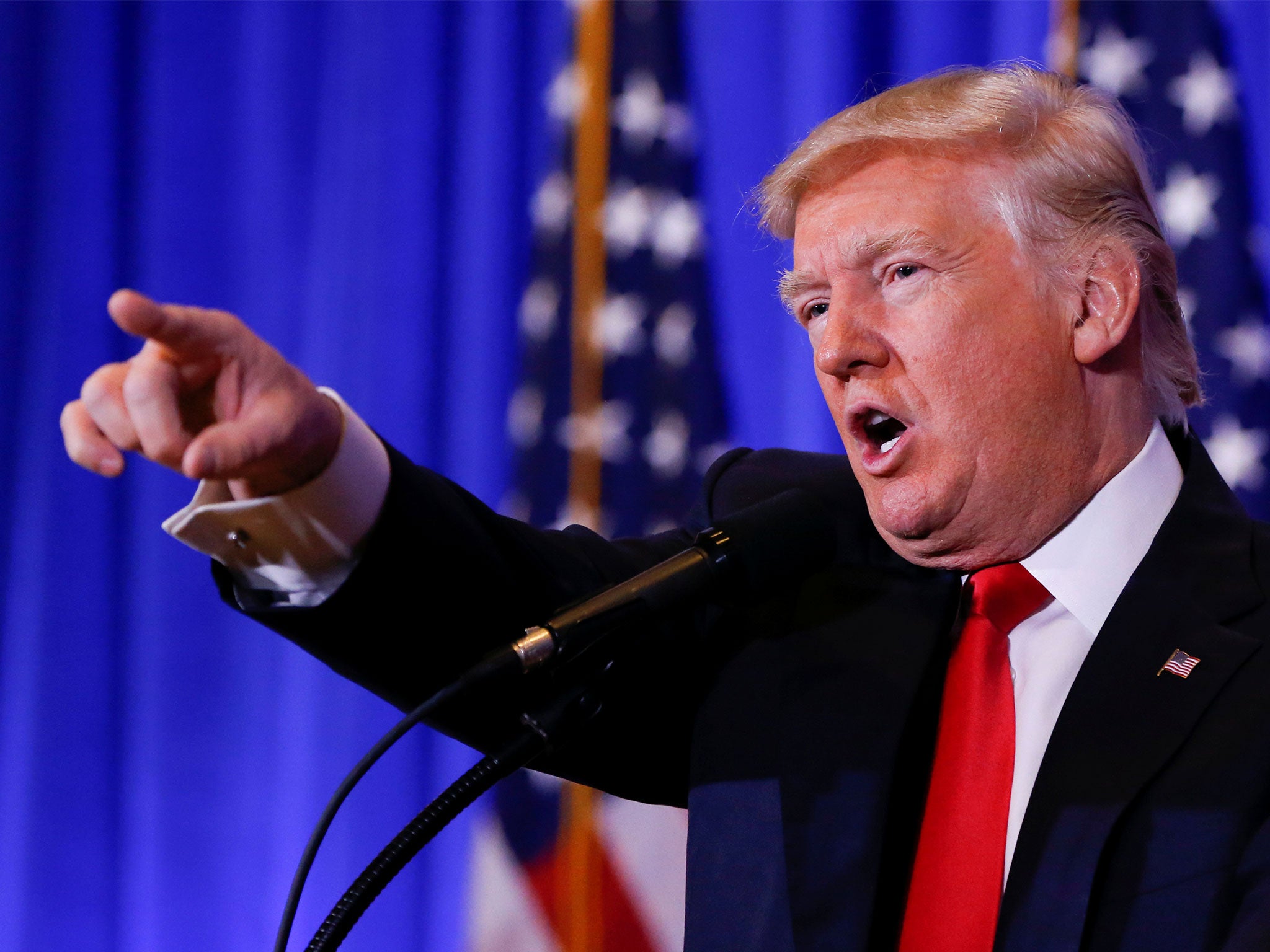Jewish settler group 'invited to Donald Trump's inauguration' amid concerns over President-elect's stance on Israel
Yesha Council says it has received invite to ceremony after UN condemns illegal settlements

Your support helps us to tell the story
From reproductive rights to climate change to Big Tech, The Independent is on the ground when the story is developing. Whether it's investigating the financials of Elon Musk's pro-Trump PAC or producing our latest documentary, 'The A Word', which shines a light on the American women fighting for reproductive rights, we know how important it is to parse out the facts from the messaging.
At such a critical moment in US history, we need reporters on the ground. Your donation allows us to keep sending journalists to speak to both sides of the story.
The Independent is trusted by Americans across the entire political spectrum. And unlike many other quality news outlets, we choose not to lock Americans out of our reporting and analysis with paywalls. We believe quality journalism should be available to everyone, paid for by those who can afford it.
Your support makes all the difference.An Israeli settler group says it has been invited to attend Donald Trump’s inauguration as controversy continues over the President-elect’s stance on the Israeli-Palestinian conflict.
The Yesha Council represents Jewish settlements in the Occupied Palestinian Territories that are held to be illegal under international law.
Its foreign envoy, Oded Revivi, said his group had been invited to Mr Trump’s inauguration on 20 January but did not immediately confirm whether representatives would attend.
The Yesha Council, which lobbies in the Israeli government and abroad, was formerly headed by Naftali Bennett, now leader of the right-wing Jewish Home party and Israel’s education minister.
Mr Trump’s transition team has not responded to The Independent’s request for comment and confirmation on whether any groups representing Palestinians or Arab Israelis had also been invited to the inauguration.
A record $90m (£73m) has been raised in private donations for the event, which has already sparked controversy over the lack of A-list performers willing to sing.
A resolution adopted by the UN Security Council last month condemned settlements in the West Bank as “a flagrant violation under international law and a major obstacle to the achievement of the two-state solution and a just, lasting and comprehensive peace”, and demanded Israel halt all construction.
The outgoing US administration’s choice to abstain from the resolution, rather than veto it, was condemned by Mr Trump.
He responded by tweeting: “As to the UN, things will be different after Jan 20th.”
The President-elect has also appointed several pro-Israel figures to prominent posts and pledged to move the US embassy from Tel Aviv to Jerusalem, which is claimed as a capital by both Israelis and Palestinians.
Mahmoud Abbas, President of the Palestinian Authority, warned that the move would have a “disastrous impact on the peace process, on the two-state solution and on the stability and security of the entire region”.
Dozens of countries are expected to reiterate their opposition to Israeli settlements and call for the establishment of a Palestinian state as “the only way” to ensure peace in the region a day before Mr Trump’s inauguration.
France is hosting representatives from more than 70 countries at a peace summit on Sunday, where delegates are expected to urge Israel and the Palestinians “to officially restate their commitment to the two-state solution.”
It will also affirm that the international community “will not recognise” changes to Israel's borders after the Six Day War of 1967, when Israel captured the Gaza Strip from Egypt and East Jerusalem and the West Bank from Jordan, without agreement from both sides.
But Prime Minister Benjamin Netanyahu has ruled out a return to the 1967 lines, and many members of his nationalist coalition oppose Palestinian independence and support expanded settlements in the face of condemnation from Britain and other allies.
Israel has settled at least 600,000 of its citizens in the West Bank and East Jerusalem, which the UN considers a violation of the Geneva Convention, which bans a power from transferring its civilians into occupied territory.
Join our commenting forum
Join thought-provoking conversations, follow other Independent readers and see their replies
Comments